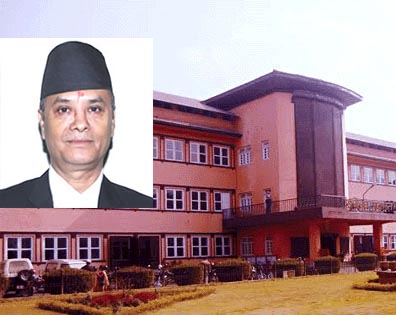Rana okayed for chief justice, but PHC to ‘monitor work’
We had to clear his name because there was no alternative — a PHC member
Kathmandu, January 1
The Parliamentary Hearing Committee has cleared the decks for Cholendra Shamsher JB Rana to become the next chief justice of the Supreme Court. However, PHC members expressed dissatisfaction with some of his past decisions.
Rana’s candidacy was unanimously approved by the committee today and the Office of the President was informed about the decision, according to PHC Chairman Laxman Lal Karna.
Rana, 61, is expected to take the oath of office from President Bidhya Devi Bhandari tomorrow before joining the Supreme Court as its chief justice. He will replace incumbent Chief Justice Om Prakash Mishra, who retired today after turning 65.
Rana is expected to remain in the post for four years and become the longest serving CJ since Bishwo Nath Upadhyay served the SC as its CJ for almost four years around 20 years ago.
“The PHC grilled Rana thoroughly on Sunday and today before recommending him for the post of CJ despite having doubts about his ability to become the CJ because of his track record,” said Karna.
The committee, according to sources, will regularly monitor Rana’s work, as it is not satisfied with the clarifications furnished by him on controversial verdicts he issued in the past. “We had to clear the decks for Rana because there was no alternative,” a member of the committee said on condition of anonymity.
Earlier, three senior justices of the SC used to be nominated for the post of CJ. But this time only two names were forwarded to the Constitutional Council, as other justices had not completed mandatory three years of service in the SC. Of the two candidates recommended for the post, one was Deepak Raj Joshee. Since his candidacy was previously rejected by the PHC, the committee did not dwell on his name.
“Rana should not treat the clearance given by the committee as a carte blanche,” said Nepal Communist Party (NCP) lawmaker Surendra Pandey. “If he fails to execute his tasks properly, the Parliament will not let him go scot-free,” said Pandey.
The PHC had received nine complaints against Rana, of which two were of serious nature. One of the complaints was related to the verdict issued by Rana in favour of Pramod Bikram Shah. Shah had transferred the ownership a public pond spread on four bighas of land in Parsa to his name following the verdict issued by Rana. Rana’s verdict had also enabled former princess Prerana Rajya Laxmi Devi Singh to lay claim to 15.1 ropanis in Chhauni, which was previously nationalised.
These verdicts, according to lawmakers, were controversial. “They pose a question mark on Rana’s ability to become chief justice,” said lawmaker Neeru Devi Pal. Rana and two other judges of the Special Court, according to lawmakers, had also played a key role in acquitting former ministers Jay Prakash Prasad Gupta, Khum Bahadur Khadka and Govinda Raj Joshee, who were charged with graft.
Rana defended his actions, stating that the verdicts were based on provisions included in the laws of the land.
“The three organs of the state should function independently,” Rana said, adding, “The SC will not create hurdles for the government to initiate and development work if those actions do not violate the country’s laws and the constitution.”






